
Alloy wheels are a popular choice among car enthusiasts due to their durability, lightweight construction, and aesthetic appeal. However, over time, these wheels can become damaged or worn, requiring refurbishment to restore their original look. If you’re considering getting your alloy wheels refurbished in the UK, it’s essential to understand the cost involved and the factors that influence it. In this comprehensive guide, we will explore the various aspects of alloy wheel refurbishment cost in the UK and provide you with the information you need to make an informed decision.
Factors Affecting Alloy Wheel Refurbishment Cost
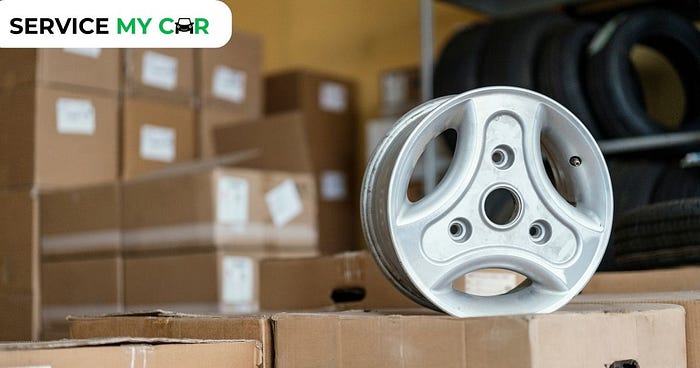
When it comes to alloy wheel refurbishment, several factors can influence the overall cost. These factors include:
1. Wheel Size
The size of your alloy wheels plays a significant role in determining the cost of refurbishment. Larger wheels require more time, effort, and materials to refurbish, resulting in higher costs compared to smaller wheels.
2. Wheel Condition
The condition of your alloy wheels also affects the cost of refurbishment. If your wheels have significant damage, such as deep scratches, dents, or bends, additional repairs may be required, increasing the overall cost. Wheels in better condition may only require minor repairs and cosmetic enhancements, resulting in a lower cost.
3. Type of Refurbishment
There are different types of alloy wheel refurbishment methods available, each with its own cost implications. The most common methods include:
- Powder Coating: This process involves applying a durable powder coating onto the wheels, resulting in a smooth and long-lasting finish. Powder coating is often more cost-effective compared to other methods.
- Diamond Cutting: Diamond cutting involves removing a thin layer of the wheel’s surface using a diamond-tipped lathe. This method provides a glossy, polished finish but tends to be more expensive due to the precision and time involved.
- Painting: Painting involves applying a new coat of paint to the wheels to freshen up their appearance. This method is usually more affordable compared to powder coating or diamond cutting.
4. Number of Wheels
The number of wheels you plan to refurbish will also impact the overall cost. Refurbishing all four wheels will generally be more expensive than refurbishing a single wheel.
5. Location
The location of the refurbishment service provider can also affect the cost. Prices may vary depending on the region, with services in larger cities tending to be more expensive than those in smaller towns.
6. Additional Services
Additional services such as tire removal, refitting, balancing, and valve replacement may be included in the overall cost of alloy wheel refurbishment. It’s essential to clarify what is included in the price and if any extra charges apply for these services.
Average Cost of Alloy Wheel Refurbishment
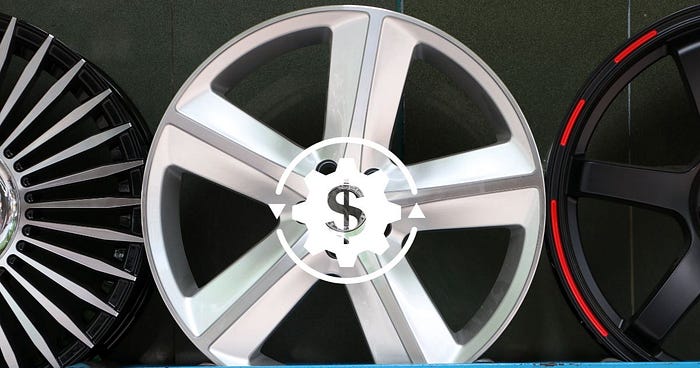
Now that we have explored the factors that influence alloy wheel refurbishment cost let’s take a look at the average prices you can expect to pay for different types of refurbishment in the UK.
Refurbishment Type Average Cost (per wheel) Powder Coating £80-£120 Diamond Cutting £150-£250 Painting £60-£100 It’s important to note that these are average prices, and the actual cost may vary depending on the factors mentioned earlier. Additionally, prices may vary between different service providers, so it’s always a good idea to obtain multiple quotes before making a decision.
How to Find a Reliable Alloy Wheel Refurbishment Service
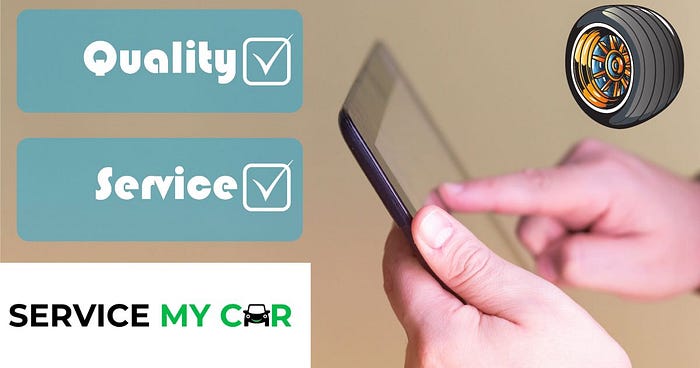
When it comes to alloy wheel refurbishment, it’s crucial to choose a reputable and experienced service provider to ensure high-quality results. Here are some steps to help you find a reliable service:
1. Research and Reviews
Start by researching different alloy wheel refurbishment service providers in your area. Look for customer reviews and ratings to get an idea of their reputation and the quality of their work. Online forums and automotive communities can be valuable resources for finding reliable recommendations.
2. Portfolio and Testimonials
Check if the service provider has a portfolio or gallery showcasing their previous work. This will give you an indication of the quality and range of their refurbishment services. Look for testimonials or reviews from previous customers to get a better understanding of their satisfaction levels.
3. Certifications and Warranties
Check if the service provider has any certifications or affiliations with industry organizations. These certifications indicate their commitment to quality and professionalism. Additionally, inquire about any warranties or guarantees provided for their refurbishment work.
4. Request Quotes and Compare
Contact multiple service providers and request detailed quotes for the specific refurbishment services you require. Make sure the quotes include all relevant details, such as the type of refurbishment, any additional services, and the estimated timeline. Compare the quotes and consider the overall value offered by each provider.
5. Communication and Customer Service
Pay attention to the service provider’s communication and customer service. A reliable provider should be responsive, provide clear explanations, and address any inquiries or concerns you may have. Good communication is essential for a smooth and satisfactory refurbishment experience.
DIY vs. Professional Alloy Wheel Refurbishment
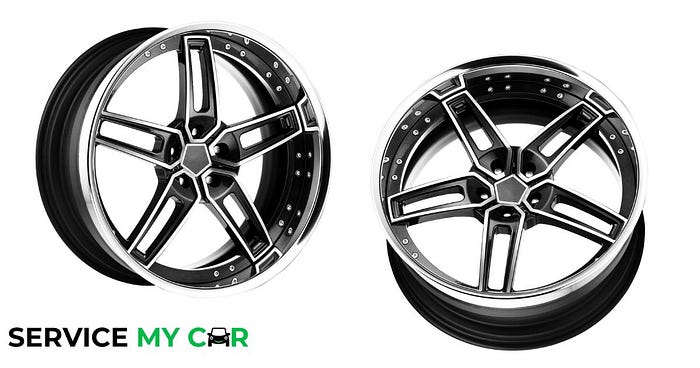
While some car enthusiasts may consider DIY alloy wheel refurbishment, it’s important to weigh the pros and cons before deciding. Here are some factors to consider:
Pros of DIY Refurbishment:
- Cost Savings: DIY refurbishment can be more cost-effective, as you won’t have to pay for professional labor.
- Sense of Accomplishment: Successfully refurbishing your alloy wheels can provide a sense of pride and accomplishment.
Cons of DIY Refurbishment:
- Skill and Experience: Alloy wheel refurbishment requires specific skills and expertise. Without proper training and equipment, DIY attempts may result in subpar results.
- Time and Effort: DIY refurbishment can be time-consuming and labor-intensive, especially if you’re not experienced in the process.
- Warranty Void: DIY refurbishment may void any existing warranties on your alloy wheels, which could be costly in case of any future issues.
If you’re confident in your abilities and have the necessary skills, tools, and materials, DIY refurbishment can be a viable option. However, for the best results and peace of mind, it’s often recommended to seek professional alloy wheel refurbishment services.
Additional Tips for Alloy Wheel Maintenance
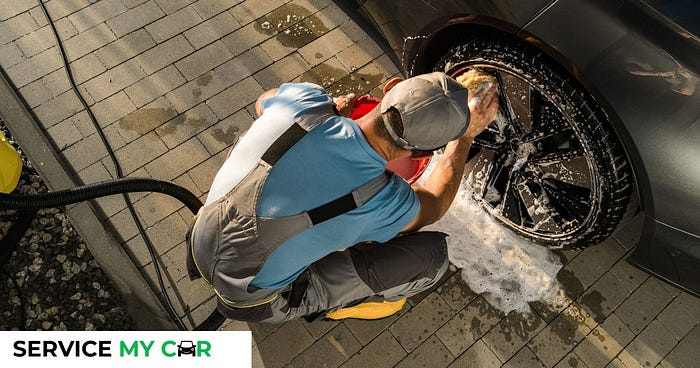
Proper maintenance can help prolong the lifespan and appearance of your alloy wheels. Here are some additional tips to keep your wheels in top condition:
- Regular Cleaning: Clean your alloy wheels regularly to remove dirt, brake dust, and road grime. Use a non-acidic wheel cleaner and a soft brush or cloth to avoid scratching the surface.
- Avoid Harsh Chemicals: Avoid using harsh chemicals or abrasive cleaners that can damage the protective coating or paint on your alloy wheels.
- Mind the Curb: Be cautious when parking to avoid scraping or scratching your wheels against curbs or other obstacles. Minor scratches or scuffs can be repaired through touch-up paint or professional refurbishment if needed.
- Consider Wheel Protection: Applying a protective wax or sealant to your alloy wheels can help guard against corrosion and make cleaning easier.
- Regular Inspections: Periodically inspect your alloy wheels for any signs of damage, such as cracks or bends. Promptly address any issues to prevent further damage and ensure your safety on the road.
By following these maintenance tips, you can keep your alloy wheels looking their best and potentially extend their lifespan.
Conclusion
Alloy wheel refurbishment cost in the UK can vary depending on factors such as wheel size, condition, type of refurbishment, location, and additional services. It’s essential to consider these factors and obtain multiple quotes from reputable service providers before making a decision. While DIY refurbishment is an option, seeking professional services often ensures high-quality results and peace of mind. Remember to practice proper wheel maintenance to keep your alloy wheels in excellent condition for years to come.
In Summery, alloy wheel refurbishment costs in the UK are influenced by various factors, including wheel size, condition, type of refurbishment, location, and additional services. To make an informed decision, it’s crucial to consider these factors and obtain quotes from reputable service providers.
In conclusion, when addressing car maintenance concerns such as alloy wheel refurbishment, clutch replacement, and even considering how long does car battery last, it's vital to be well-informed. The costs and decisions associated with these aspects can significantly impact your vehicle's performance and longevity. By carefully considering your options, seeking professional guidance, and practicing proper maintenance, you can ensure your car remains in excellent condition, saving you both time and money in the long run.













